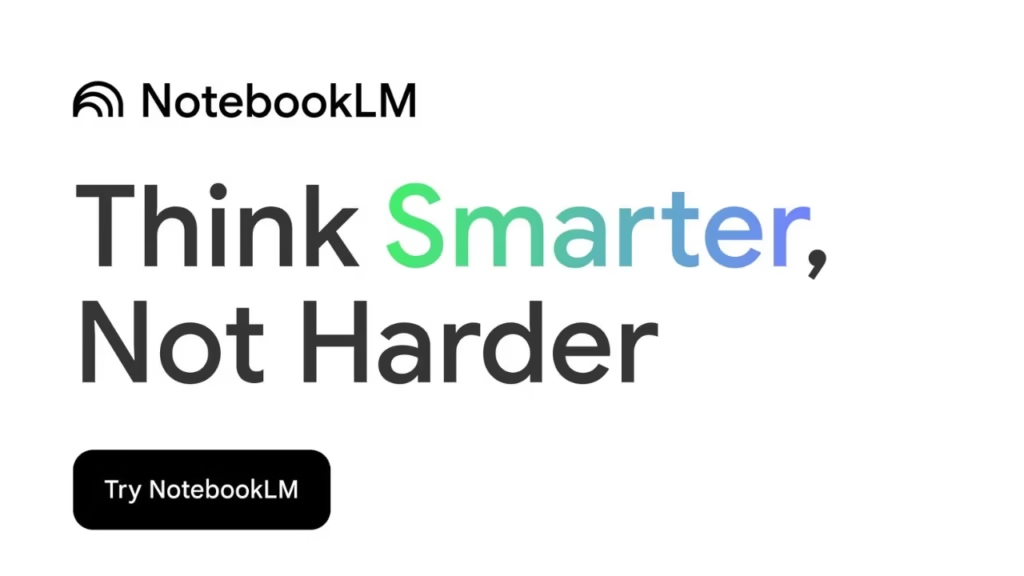Google is giving NotebookLM—its AI-driven note-taking and research assistant—one of its most significant updates to date. The new release transforms how the tool processes, remembers, and interacts with information, turning it into a far more capable research companion.
At the heart of this update is Google’s Gemini technology, now powering the NotebookLM chat system. The company says users will see notable improvements in performance, contextual understanding, and response quality. While Google hasn’t explicitly confirmed whether the integration uses Gemini 2.5, the results point toward a major leap in capability and precision.

One of the biggest technical upgrades is the addition of a one-million-token context window, available to all users across every plan, including the free tier. This massive expansion—eight times larger than before—allows NotebookLM to analyze and recall details from lengthy document collections, research papers, transcripts, and reports without losing track of earlier information. In practice, this means that users can feed the model entire archives of data and still receive relevant, context-rich answers.
Equally important, Google has boosted the system’s multi-turn memory by more than sixfold. In earlier versions, long conversations often lost context over time. With this enhancement, NotebookLM can now sustain complex discussions over many exchanges, remembering what has already been covered. That improvement makes it easier for researchers, journalists, and students to build long-running projects where continuity and recall are essential.
Google also says NotebookLM will now explore a user’s materials from “multiple angles,” synthesizing information into a single, more nuanced response. Rather than just summarizing or paraphrasing, the system aims to combine perspectives, compare facts, and ground its output in the most relevant parts of the source material. Internal testing, according to Google, has shown a 50% increase in user satisfaction with answers that draw on multiple documents simultaneously.
Another user-focused improvement is the addition of automatic conversation history. Starting this week, NotebookLM will begin saving chat sessions so users can resume their work later without losing previous exchanges. There’s also an option to delete conversation history for privacy. In shared notebooks, chat threads remain visible only to the individual user, which should reassure teams collaborating on sensitive material.
Perhaps the most creative addition is the goal and role-setting feature. Users can now define how they want the AI to behave within a conversation. For example, someone might instruct it to “act as a research advisor,” “respond like a senior marketing strategist,” or “evaluate this text from multiple expert perspectives.” This feature gives NotebookLM a degree of personality and professional framing that makes it more adaptable for varied fields—academic research, business strategy, or creative work.
Taken together, these changes point to a strategic evolution in how Google envisions its AI assistants. NotebookLM is moving beyond basic Q&A toward something closer to a thinking partner—an assistant that can process vast context, remember detailed interactions, and shape its tone and reasoning to suit a user’s goals.
The timing is also significant. With competition intensifying in the AI productivity space—particularly from OpenAI’s ChatGPT, Anthropic’s Claude, and Microsoft’s Copilot—Google’s upgrades to NotebookLM suggest a push to reassert leadership in AI-powered knowledge tools. The 1-million-token context capacity is one of the largest available to the public today, and the ability to define conversational “roles” could make NotebookLM stand out as a more flexible and human-like assistant.
The rollout of these improvements begins today and will expand globally over the next several days. For users in the U.S. who rely on AI for research, writing, or strategy work, the new NotebookLM represents more than just an update—it’s a redefinition of what an AI workspace can be. With its expanded memory, enhanced reasoning, and Gemini-powered foundation, NotebookLM is shaping up to be Google’s most capable and context-aware AI research tool yet.
In other words, NotebookLM isn’t just catching up—it’s quietly setting a new benchmark for what an AI note-taking assistant can do when it truly understands context, continuity, and intent.